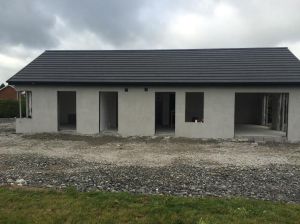Tuesday, 11 October 2016 at 10:10 a.m.
at the Croke Park Conference Centre, Hogan Mezzanine Suite, Jones Road, Dublin 3.


CHECK AGAINST DELIVERY PLEASE
Introduction
Ladies and Gentlemen, I am delighted to be here this morning to address the National Disability Authority’s Annual Conference 2016. At the outset, I would like to thank the National Disability Authority and for giving me the opportunity to be with you here today to highlight the important work being carried out by my Department, among the many others, to resolve the housing and homelessness crisis.
It is important to reiterate that homelessness and the acute shortage of homes available to those who need them is one of the greatest challenges facing this country today. It is having a profound effect on the daily lives of many individuals and families who feel they have been failed by the system and who urgently require homes.
The Government and I have made it our number one priority to resolve the housing and homelessness crisis and under “Rebuilding Ireland” we have set out a broadly based and comprehensive set of actions to do just that.
Housing in Ireland and Rebuilding Ireland as a solution to the challenges
As you may be aware “Rebuilding Ireland” sets out a practical and readily implementable set of actions that will increase housing supply to create a functioning and sustainable housing system that is capable of: –
Providing homes for families in emergency accommodation;
Tackling the underlying causes, addiction and otherwise, of people living on our streets;
Producing a minimum of 25,000 housing units nation-wide every year by 2020;
Responding post-2020 to meet future housing needs;
Delivering more social housing, much faster, and putting in place financially sustainable mechanisms to meet current and future requirements for social housing supports.
Key actions to accelerate Social Housing under Pillar 2
I would like to outline the range of initiatives being progressed under the Social Housing Pillar of Rebuilding Ireland, which are of particular interest to all of us here today.
Housing Adaptation Grants for Older People / People with a Disability (Private Houses)
It is incredibly important that we provide appropriate and suitable housing that meets the needs of all our citizens, including older people and people with a disability.
Funding for the Housing Adaptation Grants for Older People and People with a Disability was increased this year by 10%, to give overall funding of over €56 million. I am very aware of the social benefit these grants bring, by supporting the continued independent occupancy in their own homes by older people and people with a disability.
Something we have also worked on in recent times with this scheme is connecting the Councils and the hospitals, so that somebody scheduled for hospital discharge has their adaptation works prioritised by the Council.
The additional 2016 funding will see around 8,000 homes benefitting from the scheme by the end of this year, up from the 7,600 of last year.
For 2017, I am confident that we can secure funding in the budget for an even greater increase in the number of households to benefit. I hope to target adaptations and upgrades for up to 10,000 homes in 2017, in line with the Rebuilding Ireland commitment.
Increased overall funding for these Housing Adaptation Grants to private houses is an important benefit to people with a disability, given the support it provides of up to €30,000 to make a house more suitable in terms of accessibility; including works ranging from extensions to access ramps; stair-lifts; downstairs toilet facilities; etc.; all of which can really improve quality of life of the occupants.
Housing for People with Disabilities
More broadly, when it comes to the delivery of housing for people with disabilities through mainstream housing options, the Action Plan reinforces the centrality of the National Housing Strategy for People with a Disability 2011-2016.
This strategic housing policy for people with disabilities sets out the framework for the delivery of housing for people with disabilities through mainstream housing policy.
The Housing Agency is central to how we drive this agenda, working as it does with the HSE, local authorities, the Irish Council for Social Housing (ICSH) and disability representative organisations.
This cross-representative group, which includes representative organisations and the NDA, is an excellent example of the collaborative working arrangements that are needed to deliver good quality and accessible housing that meets the specific needs of an individual with a disability.
Furthermore, the partnership approach adopted under the Housing Disability Strategy recognises that the provision of suitable housing is only one element in supporting people with disabilities to live fully inclusive lives.
We’re working on the extension of the current Strategy beyond its original timeframe of 2016 and we envisage the development of local Strategic Plans to address the housing needs of people with a disability over the next 5 years.
Another important action for us here is in relation to the Government’s de-institutionalisation policy. We’ve provided ring-fenced funding of €10m in 2016 under the Capital Assistance Scheme specifically for accommodation for people with disabilities transitioning from congregated settings and we’ll continue to respond on this front in 2017 and 2018.
I am aware that the HSE has also allocated €20m this year to accommodate individuals transitioning from priority institutions identified by the HSE. It is important to say, however, that Capital Assistance Scheme funding will also be available to provide housing for people with disabilities in the community more generally that is not specifically targeted at deinstitutionalisation. My Department will continue to work with the Department of Health, the HSE, local authorities and the disability sector on all issues.
Older People
None of us are getting any younger! By 2045, it is projected that there will be double the number of 65-year-olds in this country, and we need to make sure that we plan for and cater for our ageing population.
Following a housing summit in late 2015, an inter-agency Housing Working Group led by Age Friendly Ireland set out to explore the options to better accommodate older people within their community rather than in residential care. Following research, workshops with older persons, and active collaboration between stakeholders including the Irish Council for Social Housing, the HSE, the Department of Health, Dublin City Council and my own Department, the Housing Working Group produced its report last month.
The report, titled “Housing with Supports”, was launched by my colleague Minister Coveney only last week.
Among the recommendations is the development of a pilot project of 50 to 60 dwellings suitable for the elderly. A steering committee has already been established to oversee progress and Dublin City Council has identified a potential site and an application for approval in principle for funding is currently being prepared. Minister Coveney and I are keen that this project advances as soon as possible. Age Friendly Ireland and Dublin City Council will seek to procure an approved housing body with suitable experience to deliver this project.
Homes for Smart Ageing – A universal design challenge
In addition to the actions aimed at the accelerated delivery of quality housing and a more responsive housing market, Pillar 2 of the Rebuilding Ireland Action Plan for Housing and Homelessness, contains specific commitments to meet the housing needs of the vulnerable, which includes our older people.
As with many of the themes within Rebuilding Ireland, addressing the needs of the elderly will require cross-Departmental and inter-agency co-operation and collaboration. In this regard, the commitments in the Action Plan are complementary to the objectives of the Programme for Actions for Smart Ageing published by the Department of the Taoiseach in April of this year.
As you know, Government policy is to support older people to live with dignity and independence in their own homes and communities for as long as possible. For many, living in adapted or specialist housing reduces reliance on health and social care services and can result in measurably improved health status and lower rates of hospital admissions, while also contributing to a greater sense of well-being.
“Smart ageing” iS a broad concept that has been defined as ‘using technology and innovation in both the public and private sectors to produce products, services, solutions, and systems to improve the quality of life of people aged 50 and over’. Adaptable and smart homes are the future with advantages from saving energy to creating homes suitable for a lifetime.
I had the pleasure of recently announcing, at the 85th National Ploughing Championships last month, that I was providing €100,000 in prize money to support a Smart Ageing design challenge to demonstrate innovation in the design and delivery of housing solutions for older people, focussing on three distinct areas:
smart technologies in housing for older people;
adapting existing houses to meet the needs of older people; and
life-time communities.
In this regard, the Homes for Smart Ageing: A Universal Design Challenge will be open to anyone with an idea which is feasible, cost effective and has potential for mainstreaming into the future. It is intended that the competition will be open to applicants early in the New Year.
My Department, has recently established a steering group comprising the Centre for Excellence in Universal Design, the Royal Institute of the Architects of Ireland and the Construction Industry Federation, Dublin City Council to oversee the development of the brief for the Homes for Smart Ageing: A Universal Design Challenge.
As part of the brief’s development, the steering group, which held its inaugural meeting, only last week, will consult with stakeholder groups and other interested parties.
The overarching objective of the design challenge will be to stimulate and encourage the design, construction and technology industries to be innovative in designing and delivering housing solutions for older people.
I wish everyone involved in its implementation and indeed those who take part in the challenge, every success.
I eagerly await seeing the innovation approaches that this will generate and I look forward to seeing the winning ideas and solutions utilised in the delivery of good quality housing to those who need it.
I take note of the workshops planned for the afternoon session of your conference which follow a similar theme to the Homes for Smart Ageing: A Universal Design Challenge and I am sure that innovative ideas will emerge from these collaborative sessions.
Conclusion
Returning to a normally functioning housing and construction sector is critically important in order to support economic growth, social progress and environmental sustainability.
While the Government is acting, the challenge does not stop there. It is vital that, as the 84 actions to facilitate house building are implemented, local authorities, approved housing bodies, voluntary bodies, builders and developers proactively respond to the housing supply challenge so that together we can deliver good quality housing to those who need it.



















